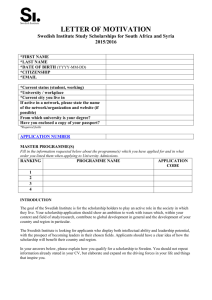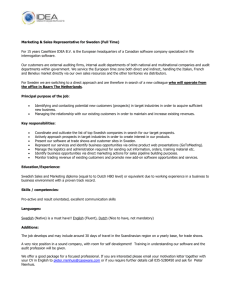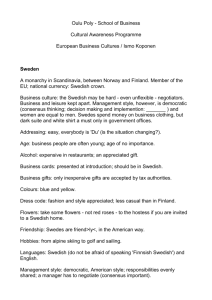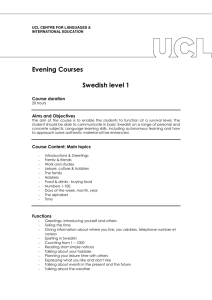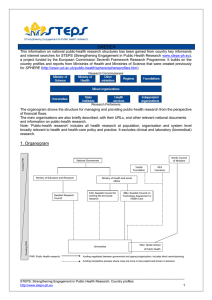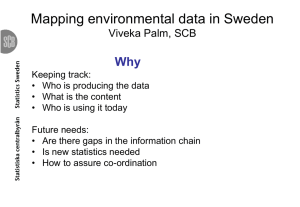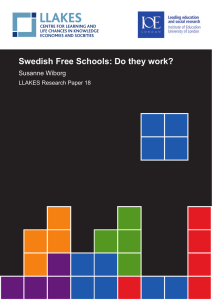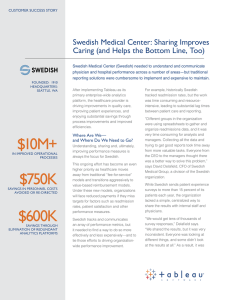Capt Johan Sigholm’s Visit to NPS Hosted by The Cebrowski Institute and Hastily Formed Networks Efficient and Secure Communication and Collaboration for Disaster Response and Peace Support
advertisement
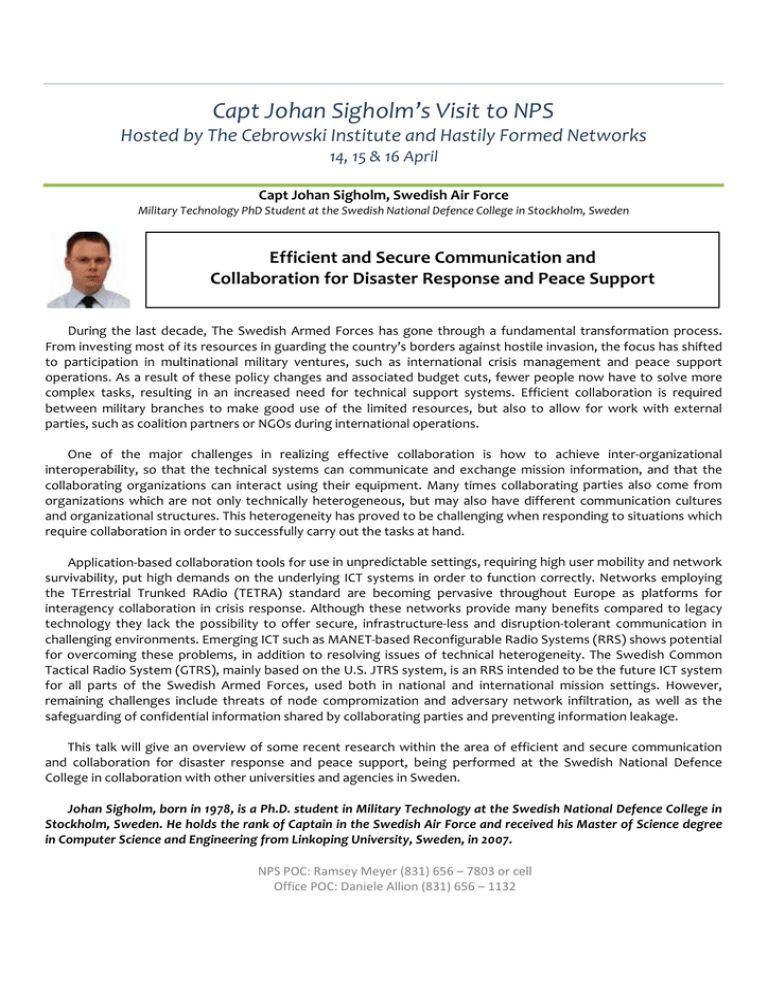
Capt Johan Sigholm’s Visit to NPS Hosted by The Cebrowski Institute and Hastily Formed Networks 14, 15 & 16 April Capt Johan Sigholm, Swedish Air Force Military Technology PhD Student at the Swedish National Defence College in Stockholm, Sweden Efficient and Secure Communication and Collaboration for Disaster Response and Peace Support During the last decade, The Swedish Armed Forces has gone through a fundamental transformation process. From investing most of its resources in guarding the country’s borders against hostile invasion, the focus has shifted to participation in multinational military ventures, such as international crisis management and peace support operations. As a result of these policy changes and associated budget cuts, fewer people now have to solve more complex tasks, resulting in an increased need for technical support systems. Efficient collaboration is required between military branches to make good use of the limited resources, but also to allow for work with external parties, such as coalition partners or NGOs during international operations. One of the major challenges in realizing effective collaboration is how to achieve inter‐organizational interoperability, so that the technical systems can communicate and exchange mission information, and that the collaborating organizations can interact using their equipment. Many times collaborating parties also come from organizations which are not only technically heterogeneous, but may also have different communication cultures and organizational structures. This heterogeneity has proved to be challenging when responding to situations which require collaboration in order to successfully carry out the tasks at hand. Application‐based collaboration tools for use in unpredictable settings, requiring high user mobility and network survivability, put high demands on the underlying ICT systems in order to function correctly. Networks employing the TErrestrial Trunked RAdio (TETRA) standard are becoming pervasive throughout Europe as platforms for interagency collaboration in crisis response. Although these networks provide many benefits compared to legacy technology they lack the possibility to offer secure, infrastructure‐less and disruption‐tolerant communication in challenging environments. Emerging ICT such as MANET‐based Reconfigurable Radio Systems (RRS) shows potential for overcoming these problems, in addition to resolving issues of technical heterogeneity. The Swedish Common Tactical Radio System (GTRS), mainly based on the U.S. JTRS system, is an RRS intended to be the future ICT system for all parts of the Swedish Armed Forces, used both in national and international mission settings. However, remaining challenges include threats of node compromization and adversary network infiltration, as well as the safeguarding of confidential information shared by collaborating parties and preventing information leakage. This talk will give an overview of some recent research within the area of efficient and secure communication and collaboration for disaster response and peace support, being performed at the Swedish National Defence College in collaboration with other universities and agencies in Sweden. Johan Sigholm, born in 1978, is a Ph.D. student in Military Technology at the Swedish National Defence College in Stockholm, Sweden. He holds the rank of Captain in the Swedish Air Force and received his Master of Science degree in Computer Science and Engineering from Linkoping University, Sweden, in 2007. NPS POC: Ramsey Meyer (831) 656 – 7803 or cell Office POC: Daniele Allion (831) 656 – 1132

